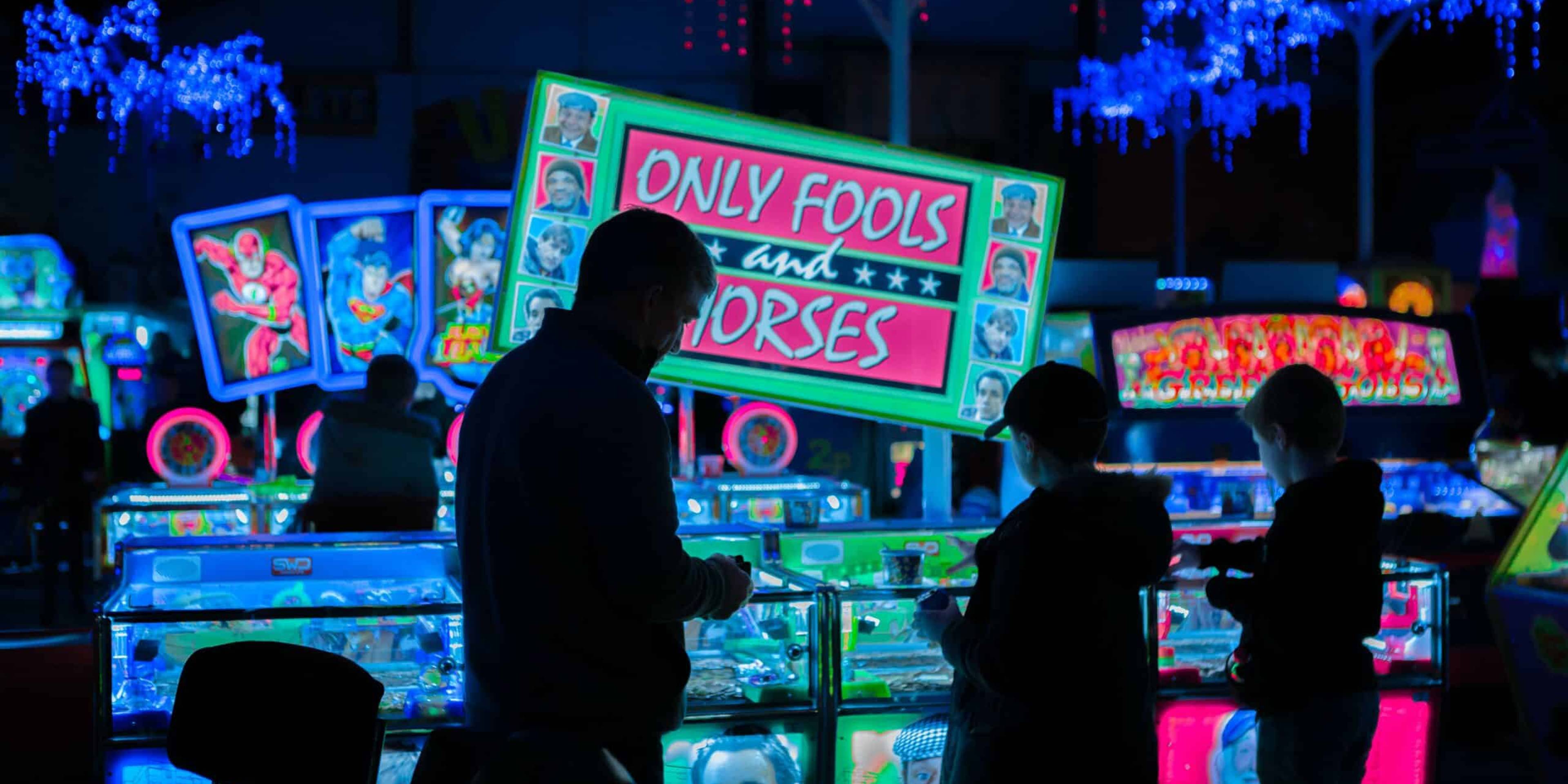July 08, 2020
Betting on Knowing Better
By Dr Kathy Weston

Reflect
School has officially ended this week and my boys have been enjoying time in the forest close to our home, chasing crickets and hiding from each other in the long grass. They’ve also been transforming cardboard boxes into ‘Netflix’ film booths; it’s amazing what they can come up with when they’re a bit bored! This time of year often leads me to reminisce about my own childhood summers and our many excursions to Irish seaside towns.
When the rain started, we’d dash off the beach and seek refuge in colourful amusement arcades. To me, the arcades were magical, kaleidoscopic places, filled with neon lights and jaunty music, and my paper cup of 2p coins gave me a warm, fuzzy feeling.
Arcades were full of games that whet my appetite for a win; what happens if I try again? Maybe I will get lucky this time? This same feeling of anticipation would occur during games of family bingo at the village hall and my family’s annual flutter on the Grand National.
Luckily, I wasn’t so drawn to these activities that I thought about them a lot, spent my pocket money on them or continued the practice of gambling into adulthood.
However, a recent podcast interview with the CEO of the charity, GamCare, illuminated the fact that, for some children, early exposure to gambling adversely affects them into adulthood (take a listen to podcast number 32 on my website).
Motivate
Our children are continually exposed to gambling options on multiple digital media and gaming platforms. Young people see a wide range of games and advertisements that subtly drive them towards spending money in the hope of greater success.
The ‘loot boxes’ that they buy during a computer game (a gamble, as you don’t know its contents), the lotto ticket, the scratch-card at the petrol station; it is not difficult for seemingly innocuous gambling to become normalised within family life. Most young people gamble for the first time with their parents. But unfortunately, for some, it has the potential to turn into a lifelong problem.
Many adult gamblers report starting gambling in their teens and note that their behaviour escalated from that point. The Gambling Commission report (2019) found that 1.7% of 11-16-year olds are classified as ‘problem gamblers’. These children are preoccupied with gambling to the extent that other aspects of their life suffer, spending ever increasing amounts of money and time on it.
We must be mindful of the importance of talking about both the thrill and the risks associated with such behaviour. Compared to the other risk-behaviours young people engage in, gambling is much less talked about. Even those working with young people often neglect to address it within exploratory chats.
Support
What can we do? Think back to your own upbringing and your own experiences of gambling behaviours and do a little family audit of any gambling behaviours. Aim to model safe behaviour and try to teach your children to think critically about the messaging they are exposed to.
Can they understand how particular interactions with games or activities have the potential to drive them towards decisions that are detrimental to mental health or wealth?
Research shows that there are strong links between children’s participation in gambling and their own disposable income, including from pocket money. We need to educate our children about how to manage their own money responsibly and ensure that we don’t inadvertently facilitate gambling (e.g. linking our payment card details to their games, without having already had meaningful conversations about risk-taking behaviours).
In short, it is about ensuring that they know when to stop and how to stop. If the latter feels difficult, the good news is that there are fantastic organisations out there both for young people and their parents.
GamCare’s website helps young people learn more about gambling and parents can also find practical guidance on how to have tricky chats about gambling.
Are you a Tooled Up member?
If you are a registered member of the Tooled Up community, click here to explore our library of resources.